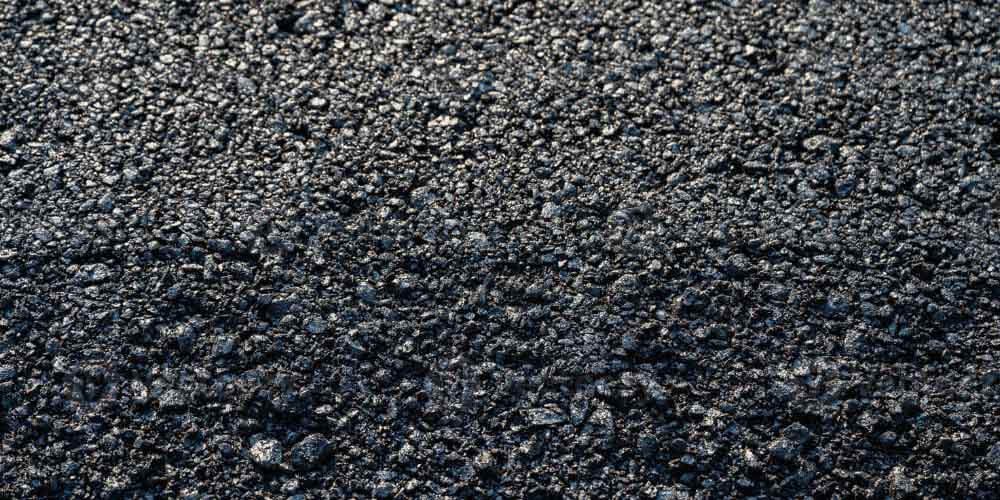What is the Difference Between Tarmac and Asphalt?

Many of us do not realise that there is much difference between the tarmac driveways and asphalt driveways. Since both of them are widely and most commonly used surfacing materials for driveways, they’ve plenty of similarities.
However, there are a few distinct dissimilarities between these two materials as well. Even though they do appear almost the same on the external, there are still a few aspects that you must consider when you decide to use any of the material.
What is Tarmac Driveway?

A tarmac driveway, often referred to as an asphalt driveway, is a type of driveway constructed using a material known as tarmac or asphalt. It consists of a blend of crushed stones or aggregates and a binding agent called bitumen or asphalt cement. The bitumen acts as an adhesive, holding the aggregates together to create a smooth and sturdy surface.
Tarmac driveways are a popular choice for residential applications due to their durability, appealing appearance, and cost-effectiveness. They provide a reliable and long-lasting solution for creating functional and aesthetically pleasing driveways for homes and properties.
How Long Will Tarmac For Driveways Last?
The lifespan of a tarmac driveway can vary depending on several factors, including the quality of the initial installation, the level of maintenance, and the local climate. However, on average, a well-constructed and properly maintained tarmac driveway can last anywhere from 15 to 20 years or even longer.
- Quality of Installation: A professionally installed tarmac driveway with a solid foundation is likely to last longer. Proper compaction of the base and precise application of the tarmac surface are crucial for durability.
- Maintenance: Regular maintenance, such as sealing cracks and resealing the surface every few years, can extend the lifespan of a tarmac driveway. Neglecting maintenance can lead to premature deterioration.
- Traffic Load: The amount and type of traffic the driveway receives can affect its lifespan. Heavy vehicles or frequent heavy traffic can put more stress on the surface and lead to quicker wear and tear.
- Climate: Climate conditions play a role as well. Driveways in regions with extreme temperature variations, frequent freeze-thaw cycles, or intense sunlight may experience more rapid degradation.
- Proper Drainage: Adequate drainage is essential to prevent water from seeping beneath the tarmac surface, which can cause damage over time. Proper grading and drainage systems are crucial for longevity.
What is Asphalt Driveway?

Asphalt is a prevalent surface for driveways because it’s an inexpensive solution for large surfacing areas. But when you use it for a smaller surface, then it can cost you a little extra than usual.
Even though asphalt surfacing is often being mentioned as asphalt tarmac surfacing but in reality, the two things aren’t the same. The main difference between asphalt and tarmac is that
asphalt is tremendously hard-wearing, but the main disadvantage is that it’s not as hardy to the continuous deterioration by car tires as tarmac.
However, asphalt is way more unaffected by extreme weather circumstances and requires less maintenance. Another difference between these two ‘tarmac vs asphalt’ is that asphalt is way kinder to the environment than tarmac.
When the driveway gets old, you can reclaim asphalt and then reuse the material elsewhere fairly easily. For driveways you can also use asphalt concrete. Do you know what asphalt concrete is?
Well, asphalt concrete is a blend of asphaltic cement mixed with grit or sand which delivers a long-lasting and hard-wearing driveway. These driveways are way more expensive as well as harder to repair than the asphalt or tarmac. Also, Asphalt concrete gets damaged more easily by fluctuating temperatures.
How Long Will Asphalt for Driveways Last?
The longevity of an asphalt driveway can vary depending on several factors, including the quality of installation, maintenance practices, and the local climate. On average, a well-constructed and well-maintained asphalt driveway can last anywhere from 20 to 25 years or even longer.
- Quality of Installation: A professionally installed asphalt driveway with proper compaction and thickness is more likely to last longer. A solid base layer and precise application of the asphalt surface are critical for durability.
- Maintenance: Regular maintenance is essential for extending the life of an asphalt driveway. This includes sealing cracks, resealing the surface every few years, and addressing any damage promptly.
- Traffic Load: The amount and type of traffic the driveway receives can impact its lifespan. Heavy vehicles or frequent heavy traffic can put more stress on the surface and lead to quicker wear and tear.
- Climate: Local climate conditions play a significant role. Driveways in regions with extreme temperature variations, frequent freeze-thaw cycles, or intense sunlight may experience more rapid degradation.
- Drainage: Adequate drainage is crucial to prevent water from seeping beneath the asphalt surface, which can cause damage over time. Proper grading and drainage systems are essential for longevity.
The Differences Between Tarmac VS Asphalt driveways
While tarmac and asphalt are usually used for pavements, driveway surfaces, and roads, they aren’t the same. Asphalt is a mixture of aggregates and bitumen that needs up to two days before it completely cures. Whereas, Tarmac is a combination of crushed stone and tar that cures quickly. Anyways, below, we have put together a few basic differences between tarmac vs asphalt. Let’s have a look at the differences:
- Asphalt offers a better finish and smoother surface as compared to the tarmac. This helps to increase the tire grip as well as makes it a more suitable, safer option for your driveways and roads. This happens because tarmac consists of larger aggregates as compared to asphalt has.
- Asphalt is reusable but tarmac is not. You can scrape off the asphalt surface as well as reprocess the material to use for a different project. This thing makes the asphalt a more eco-friendly choice when we compare it with tarmac.
- Tarmac is likely to damage from diesel or petrol spills, while asphalt needs less maintenance.
- Asphalt is cheap material when you use it over a big surface area. That is why it’s commonly used for driveway surfaces, pavements, and roads. However, when it comes to a small surface area, asphalt is quite an expensive option.
- Tarmac needs more maintenance than asphalt.
- Asphalt is a little bit more expensive than tarmac when you use it on a long surface.
Similarities Between Tarmac and Asphalt
- Both are used for a wide range of paving applications for several decades now.
- Both paving materials have the same makeup.
- These two are involved in a petroleum product, fillers such as sand, and aggregate such as stone.
- Both can take on large loads and heavy vehicles.
FINAL WORDS
Both asphalt and tarmac are used for surface pavements, roads, and driveways, but they aren’t the same material. Tarmac is a blend of tar and aggregates, whereas asphalt is a blend of bitumen and aggregates. Tarmac is easy and quick to install and a little bit cheaper than asphalt (see our Tarmac/Asphalt Driveway Cost Calculator).
If you are interested in getting a tarmac driveway installed in the Johannesburg area, then contact Tarworks Construction. We can take care of all your tarmac needs and will ensure a safe, quality, and long-lasting installation.
Recommended Posts

Everything You Need To Know About Tarmac Driveway
February 13, 2023

The Complete Guide To Resurfacing Your Asphalt Driveway
November 17, 2022

Tarmac Vs Asphalt:- Which is best for your driveway?
October 10, 2022
